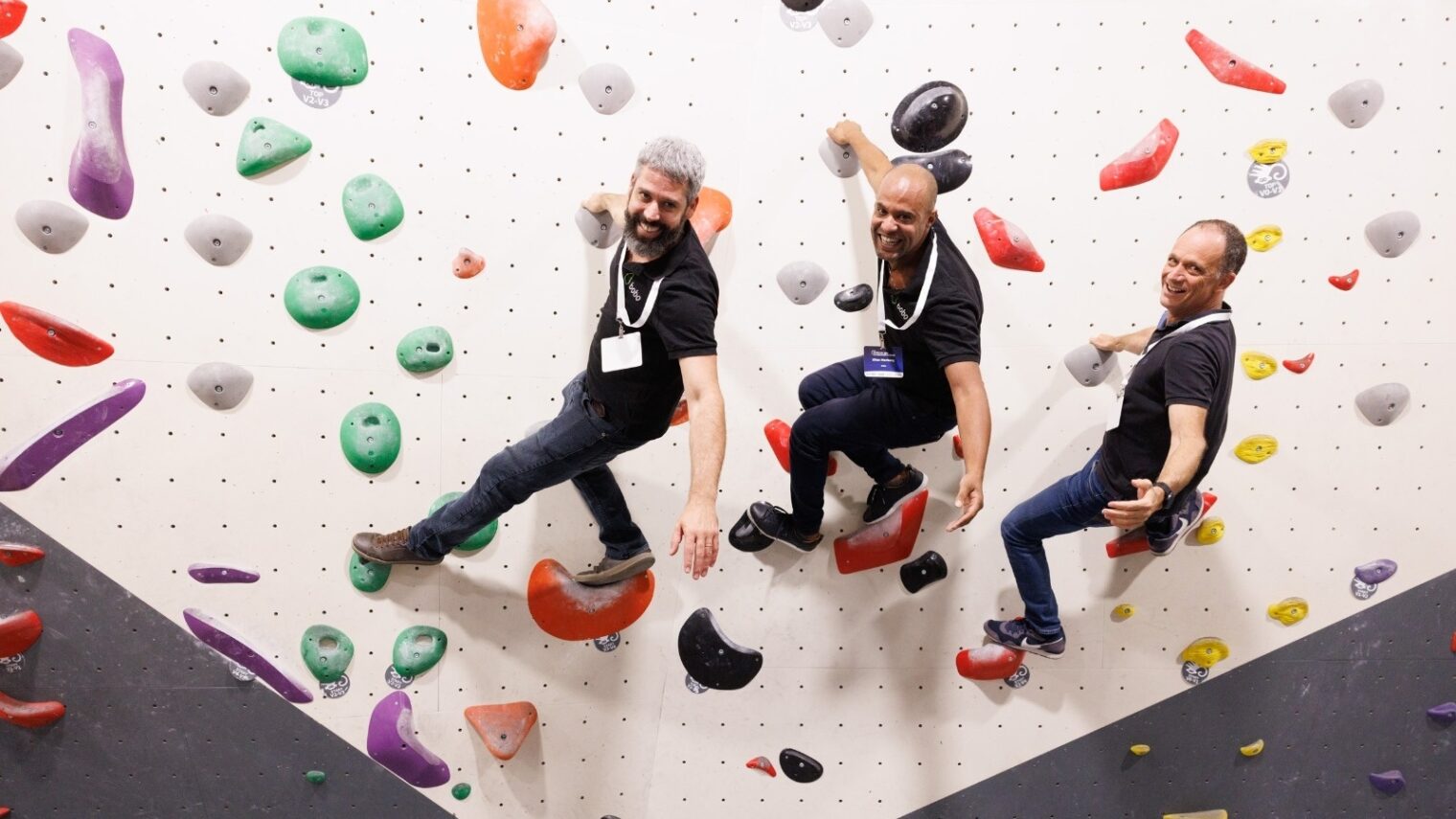Think of physical therapy, and the mind wanders to mundane moves, endless repetitions and a discipline of steel. But now it can also wander to a cool activity to be shared with family and friends, courtesy of an Israeli startup determined to turn looking after ourselves into an actual experience.
BoBo Balance was established by two physiotherapists in 2017 with a very clear goal in mind – to make training sessions more engaging and fun.
“The main problem with rehab is that people neglect it and don’t do it because it’s boring and painful,” explains Haran Anjioni, cofounder and VP R&D of BoBo Balance.
To combat this phenomenon, the startup started gamifying physical therapy by connecting a balance board to games already available online.
“We turned it into a challenging game with a score, and the patients, instead of paying attention to their pain or boredom, began focusing on how to get the highest score snowboarding or racing a car,” Ajioni says.
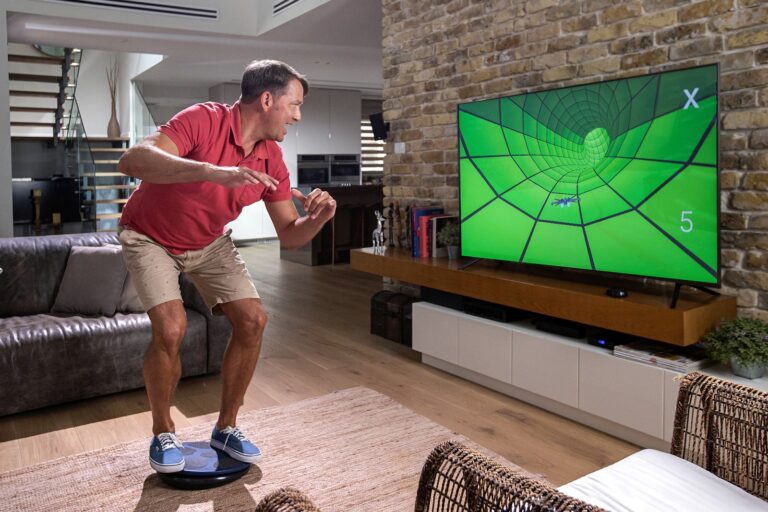
“We understood that we can use the power of technology to encourage people to do the exercises that they need. We added many layers, based on information that we’ve collected and the rehab and therapy that we offer clients.”
Nowadays, Bobo is comprised of a wearable sensor that can be attached to a balance board or any part of the body to aid in doing exercises based on protocols developed by the physiotherapists.
It’s already in use in 5,000 clinics worldwide, including HMO and army clinics here in Israel, as well as by 15,000 customers using it as a home-based device.
Fall prevention
Recently, the company expanded its focus from rehab to prevention and has given the product an additional role as a fall-prevention trainer.
Falling among the elderly is “a full-blown epidemic across the world nowadays,” says Yair Agami, BoBo’s chief marketing officer.
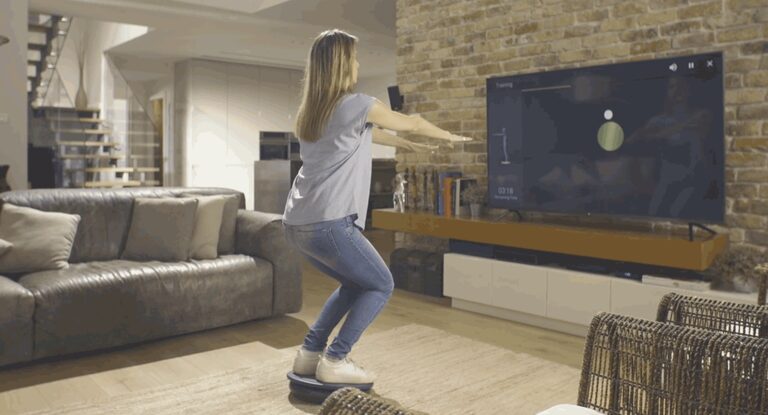
“When a person falls, there’s a very high chance that they’ll end up hospitalized, and in many cases a person’s whole lifestyle changes, turning from independent to dependent.”
Knowing that users might have technological barriers, Bobo simplified the process. Still, people aged 65 today have been using smartphones for at least a decade, “so they’re used to working with apps,” Agami notes.
“Unlike a ‘dumb’ device, we have the ability to measure balance using a movement sensor,” he explains. “We can, in fact, evaluate the improvement or the level of a person’s balance.”
Agami says the issue of gamification is also super important.
“Research shows that engagement levels go up when you play games, because you don’t feel that you’re working hard. When I stand on a balance board and I’m playing, I’ll be working on balance areas without getting bored,” he says.
“When playing, you yourself create a higher-level training session because you go off-balance and all the systems work at an increased pace,” adds Anjioni. “It makes the session more effective and the experience longer and more significant.”
A smiling space
The company is comprised of 10 employees, all based in Israel, and has raised $2.4 million from angel investors. The feedback from users, the company leadership says, has been great.
“Physiotherapy clinics really love it because it makes patients leave with a smile. It makes the whole treatment room a more smiling space,” Agami notes.
“We also have examples of quite a few grandmothers whose grandchildren play with it,” he adds. “There’s real intergenerational use of the product, and suddenly grandparents can play with their grandkids on the digital platform that they’re used to.”
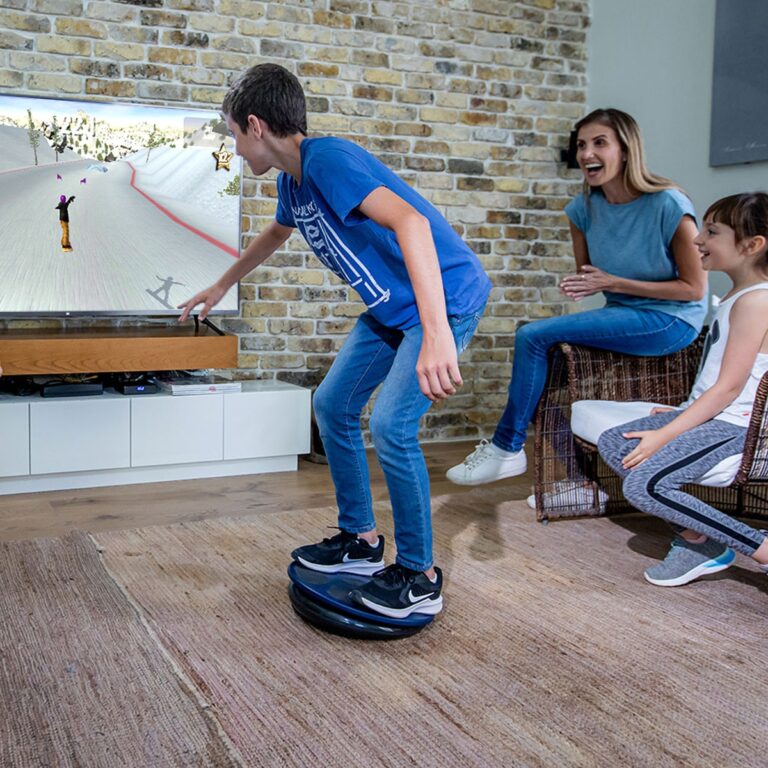
Looking forward, BoBo plans to keep on expanding in the field of elderly fall prevention.
“It’s a whole world and we’ve just scratched the surface,” Anjioni says.
“Our product is already being used to get the elderly population to practice, but we’re moving on to a solution that includes fall prevention – from identifying the physical capabilities of the person working out and ranking them to providing them with a workout tailored to their needs combined with questionnaires that will help solve all the risk factors surrounding them.”
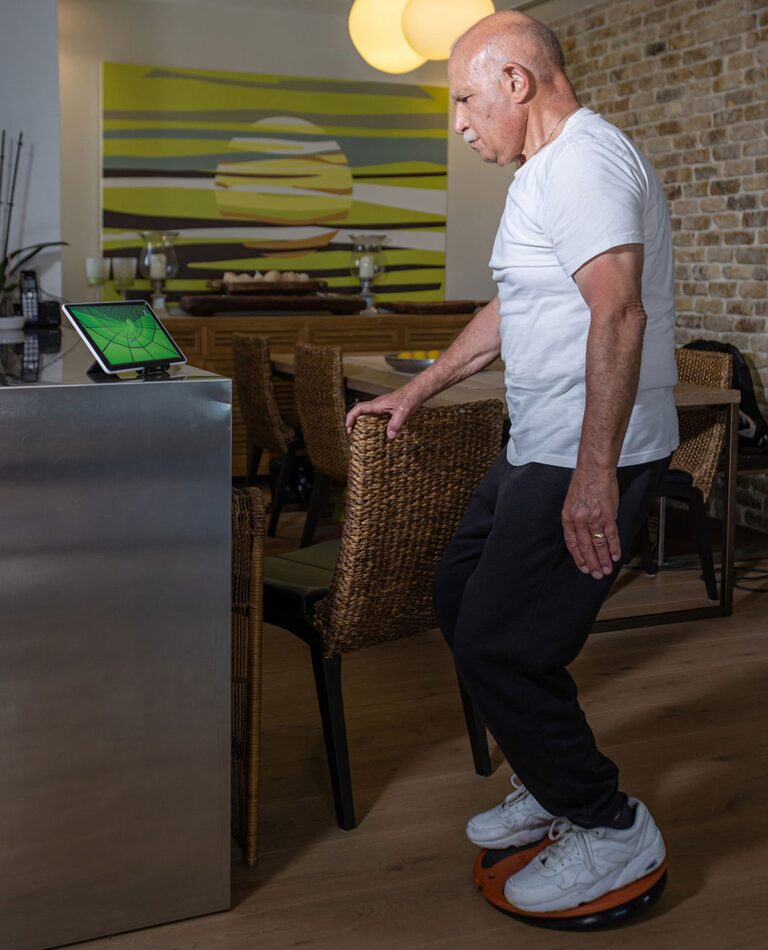
“Whether it’s where they live and how their house is set up, what obstacles they come across every day, their general health, or the medications they take – we’re building a system that will be able to identify fall risks, work on their capabilities and alert relevant parties when need be, f help is needed in the form of a cane, or in rearranging the house, or a doctor to adjust medications.”
Overall, he says, “we’d like to lower the level of risk with a more holistic approach using our device.”
For more information, click here.




